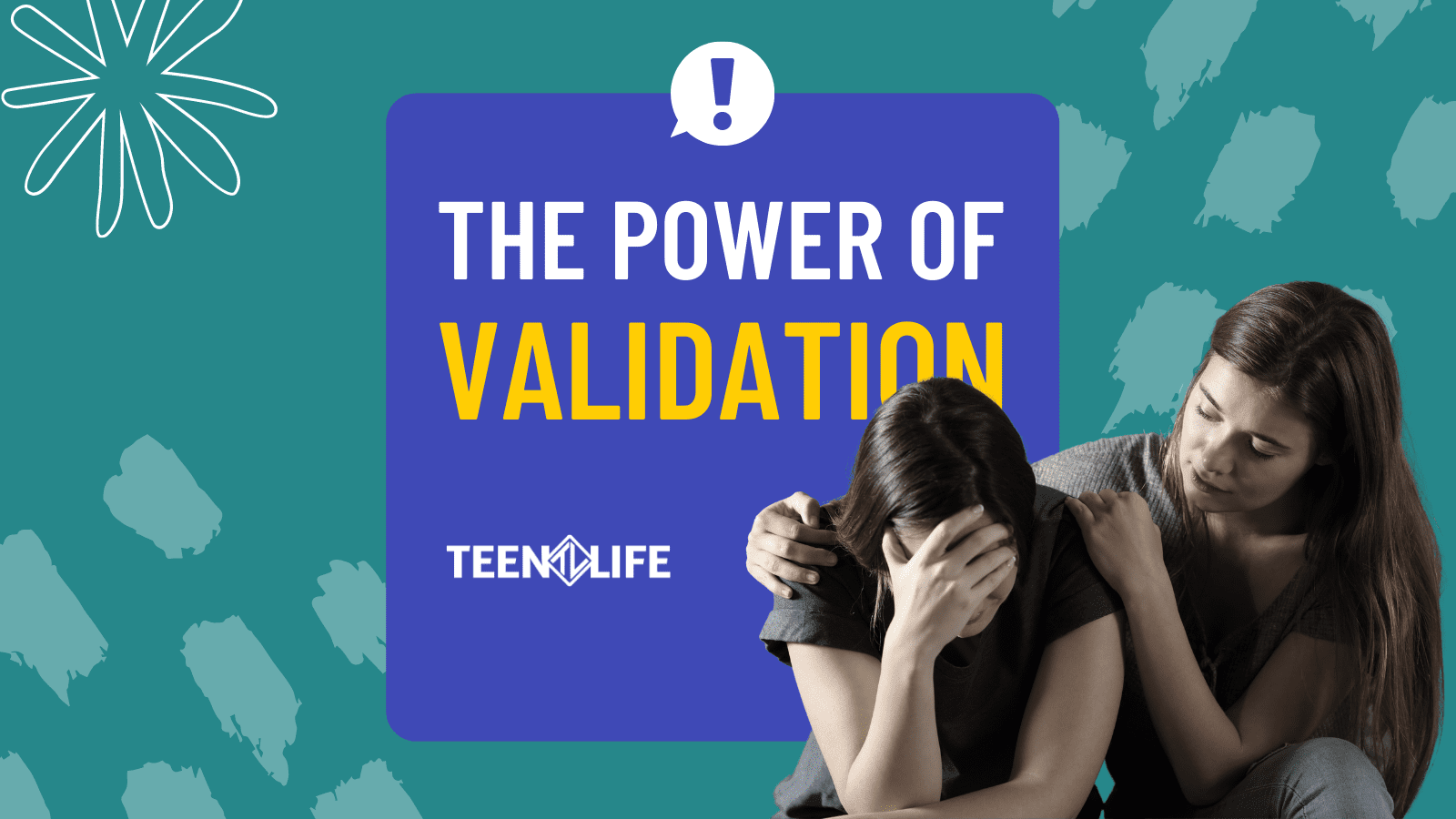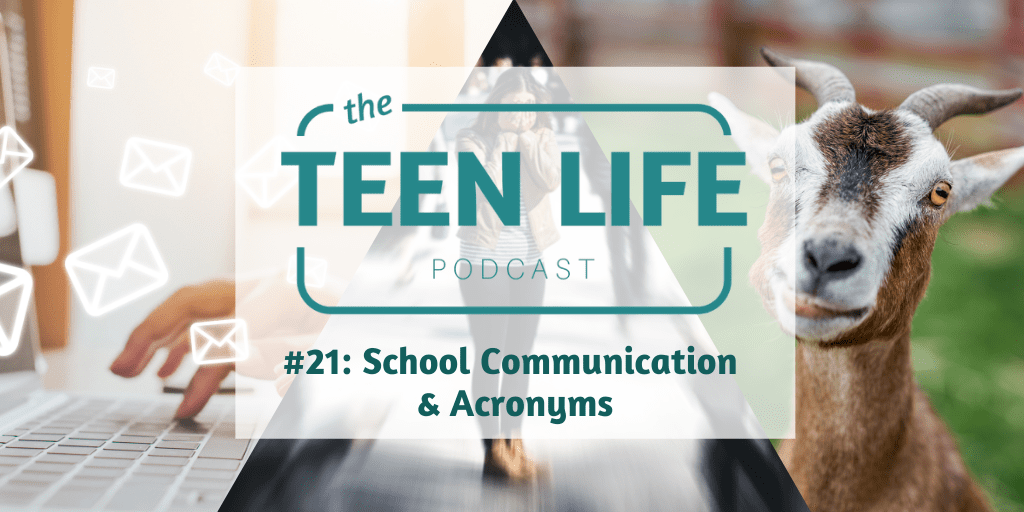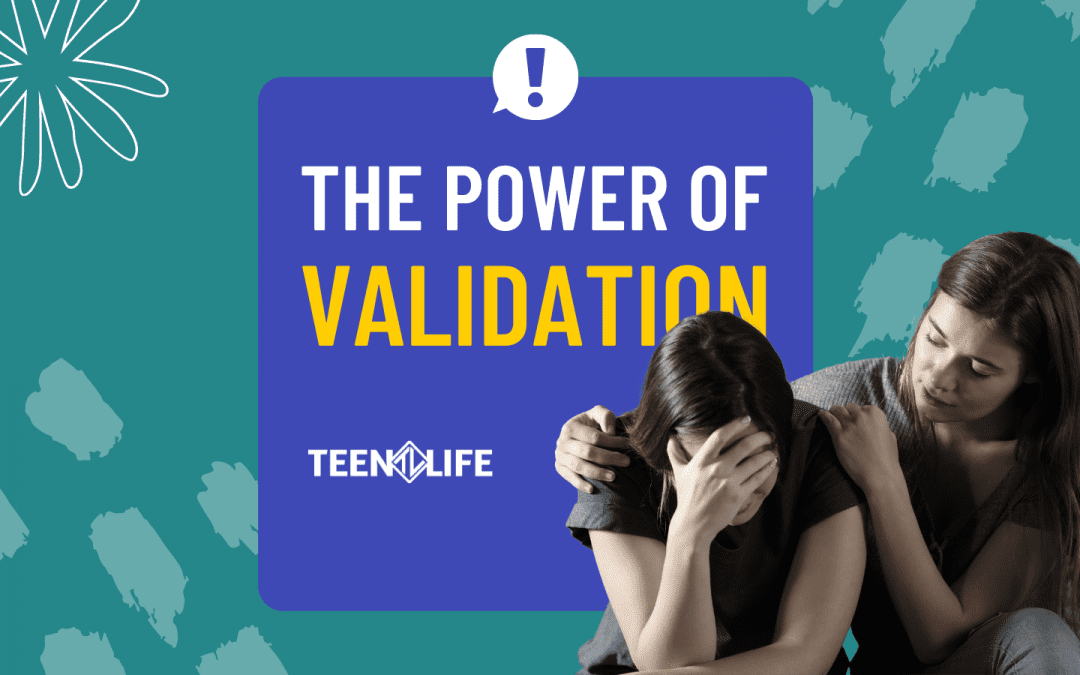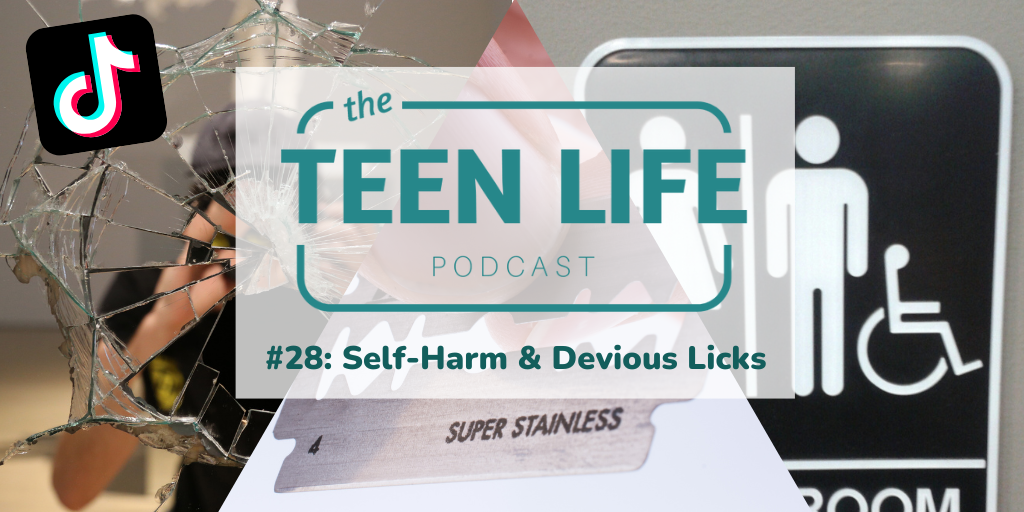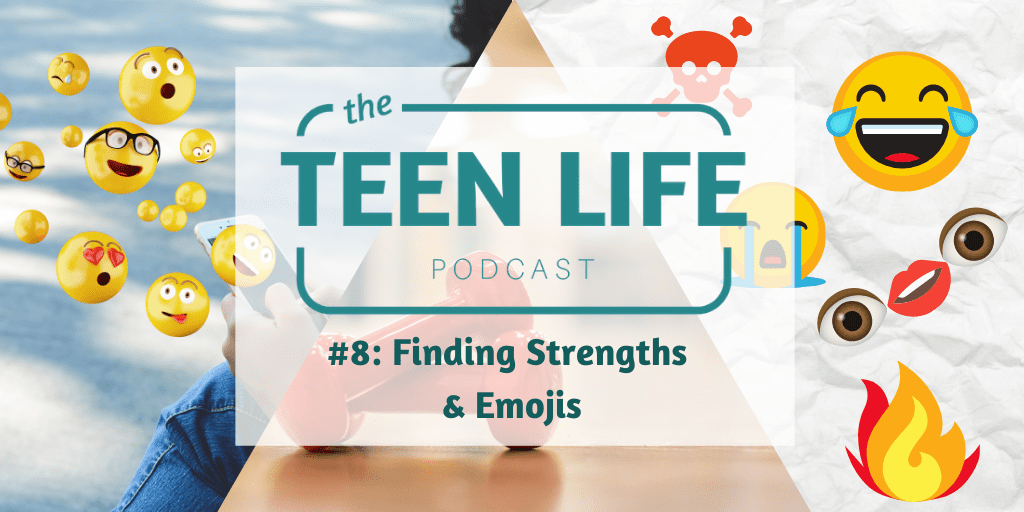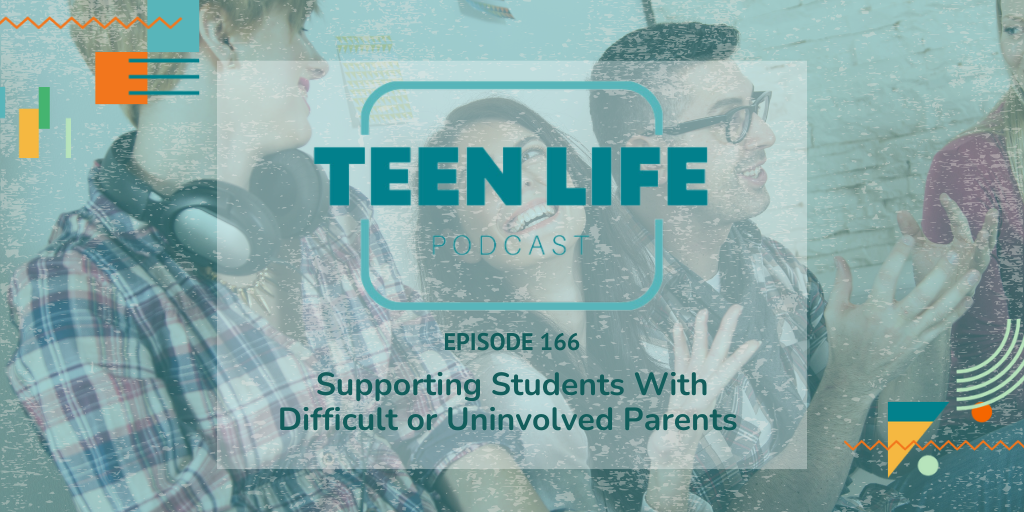
Supporting Teens with Difficult or Uninvolved Parents | Ep. 166
Podcast: Play in new window | Download
How can we step up for teens with uninvolved parents without overstepping?
As mentors, educators, and community leaders, we often encounter students who need extra support because of challenges at home.
How can we best be there for them without overstepping boundaries? And how do we approach and work with parents who might be distant, resistant, or even hostile?
Whether you’re in a school, church, or community setting, this episode offers practical strategies and real-life examples to help you navigate these situations with compassion and effectiveness.
Key Question
How can I support students who have uninvolved or difficult parents? And how do I work with those parents?
How to Support Teens:
- Be Consistent Teens thrive on stability, especially when they don’t have it at home. Show up for them in small but meaningful ways, and make sure they know they can rely on you.
- Be Willing to Step In and Help with Basic Skills Some teens may not have the support they need to develop essential life skills, like studying, organizing, or managing their emotions. Offer to help where you can, but remember to respect their autonomy.
- Connect Them with Resources You can’t be everything to every teen, and that’s okay. Knowing where to direct them for additional support—whether that’s tutoring, counseling, or extracurricular activities—can make a big difference.
- Encourage Without Bashing the Parents It’s important to uplift teens without criticizing their parents. You can validate their feelings while maintaining a respectful and neutral stance about their family situation.
How to Work with Parents:
- Come with Compassion, Not Judgment It’s essential to approach parents with empathy, recognizing that you may not know the whole story. Their behavior might be a result of challenges you can’t see—mental health struggles, past trauma, or overwhelming life circumstances.
- Meet Parents Where They Are Offer multiple ways to communicate and connect. Whether it’s meeting at a convenient time or having a phone call instead of an in-person meeting, flexibility can help build trust and open communication.
- Advocate for the Teen Without Blaming If you need to discuss a teen’s challenges, do so with care. Gently express how the parent’s involvement (or lack thereof) impacts their child while offering constructive, non-judgmental support.
- Offer Support Give parents simple, manageable suggestions to become more involved. Maybe you can remind them about events or even offer a ride for their child. The goal is to show you’re on their side and want to partner with them for their child’s success.
Perspective Shift
It’s crucial to remember that teens don’t choose their parents, and many face circumstances beyond their control.
For some, their home life puts them at a disadvantage, and they may need more support, empathy, and understanding. On the flip side, consider the parents’ perspective. They may not want to be difficult but might lack the skills or support themselves. They could be dealing with issues like mental health struggles, financial stress, or simply not having had positive role models.
Building trust with compassion can open the door to making a real difference.
TL Tips & Takeaways:
Celebrate Small Wins:
Look for ways to recognize students’ efforts and progress. Acknowledging these can boost their confidence and help them feel valued.
Check-In:
Ask a “fist-to-five” question about how things are going at home. This simple check-in can give you insight into their current situation.
Do One Small Thing:
Think of one small way you can support a student this week. Whether it’s bringing an extra lunch, offering a ride, or helping them with schoolwork, these little gestures can have a big impact.
Read Episode Transcript
Tobin (00:05) Okay. How can I support students who have uninvolved or difficult parents? And how do I work with those parents? That is our question for today. Once again, welcome back to the Teen Life Podcast. My name is Tobin and I’m here again with Karlie and Caleb. And we just want to talk today about the question that was brought to us is how do we deal with students who may have a different home life than what we’re used to or expecting? we want to start with just kind of some easy tips for you. So how to support the teens. The first and foremost thing is just to be consistent.
Karlie Duke (00:29) Mm
Tobin (00:38) and be willing to step in and help with basic things that they may not be getting at home. Don’t take for granted that they are getting told the things that you think that every kid gets told because they may not be. The biggest example that is they also may not have parents literally at home before they come see you. They may be on work shifts or whatever it may be. Connect them with resources that
Caleb Hatchett (00:50) Hmm, yeah.
Tobin (01:05) you know, that may be able to help because the one thing that I’m really bad at is trying to do everything for someone in need. And sometimes that actually makes it worse on you and on the student as well. And then, yeah, exactly. And then encourage them without bashing the parents. That’s our, our main four things before we get kind of dive into this, but, you know, I always tell people that whenever you are dealing with stuff like this – That is still their family. And when it’s, when it’s all said and done, especially when they’re in the teenage years, they have to figure out as an adult how to deal with their parents. But whenever they’re teens, they, don’t have that choice. So don’t, don’t create tension or angst that is probably already there and you don’t need to be adding gasoline to the flame. Like, and so, that’s our four easy, kind of not easy. That’s our four broad ways that we can help support teams that you only think I add to that or maybe one that I’m not thinking of.
Karlie Duke (02:10) Well, I think let’s also talk about what does this look like. When we’re talking about uninvolved or difficult parents, which it’s hard to define because that could be a variety of different things. But especially if you are
Tobin (02:27) Mm
Karlie Duke (02:31) in a school, you might see kids who come home or come back to school without homework done, without projects done. Maybe they aren’t getting forms signed by parents they should. Tobin, you just mentioned the other day, sometimes schools do things for band, they have father -son night or for drill team, daddy -daughter things. But if there’s not an involved parent, maybe they feel like they don’t have anyone who can show up.
Tobin (02:42) Mm -hmm.
Karlie Duke (03:02) for that kind of thing. And so when it comes to uninvolved parents, that’s a big thing too, especially from the school or from the church, or maybe you have one of your child’s friends who comes from a home where the parents are uninvolved or have mental health problems where they can’t be available for the student in the way that they need to be. Maybe they work difficult hours and they work at night and they can’t be at sporting events. And you’re sitting there going, I want to,
Caleb Hatchett (03:07) Yeah.
Tobin (03:07) Yeah. Karlie Duke (03:31) Help this student, but how can I get through to a parent that is a more difficult situation?
Tobin (03:37) Going back to that, the father, son, mommy, son, whatever it may be, those kind of events, one thing I’ve seen schools do very well in this situation is they may call it, I’ll give an example, the choir at the school that my son goes to, they have a father-son night for their choir, and the dads sing with the choir.
Karlie Duke (04:00) Hmm.
Tobin (04:05) And I think it may be moms too, but whatever parent night, whatever. And I don’t think they even call it parent. I think they call it like heroes night or whatever, because then that gives you a chance to say to a student like, Hey, if you don’t have a parent or you or your parent is not someone that you want to bring in this situation, you can also invite X, Y, Z. In this case, it’s like, former music teachers. Cause I get invited to it every year by, you know, old students that I used to have. and that’s not a, that’s not a humble brag. It’s just in general, like that’s just like,
Caleb Hatchett (04:12) Mmm. Hmm.
Tobin (04:34) I, it’s a cool thing that I get to see every year. so if you are a school staff person or a person who’s in charge of those things, just kind of think through alternatives of what are ways that I can make sure that everyone feels included in this situation, whether they have a parent that’s gone or a parent that’s not involved or a parent that doesn’t show up or, you know, a parent that maybe the student doesn’t want to come for other reasons. And so, just kind of think through how you can have alternative ways to celebrate that without alienating some people too.
Caleb Hatchett (05:04) Yeah, I think too, it’ll look different in every environment, right? Like you being a teacher and supporting a student who has uninvolved or difficult parents is gonna look different if you’re a student minister or a group leader or in, that person’s community. I think the biggest thing, for me, in those situations is like a lot of times, like, you’re to have to pick up on these things and kind of take the lead on, you know, students not going to. Unless it’s a safe environment, isn’t going to really give up that information just willingly on, you know, the first interaction with them. And so, you know, as a, as a student minister, it’s about creating those environments and taking the charge on, let’s go get lunch and let’s go build a safe relationship and a safe community. And I think another just boundary to have is like, you know, encouraging without bashing the parents, but also being there without being the parent, you know, you don’t have to fill that parent role. That’s not, that’s not your job.
Tobin (06:00) Yeah, that’s good. I like that.
Caleb Hatchett (06:06) But still be there and still support that student can it’s about it’s a tightrope to walk but you don’t need to be the parent for for that student and I think you know There’s other ways to handle like for the parents themselves is just to come with compassion and not judgment. You obviously want to create a safe space with the student to where, you know, it doesn’t seem like you’re taking a side, just whenever you’re viewing that, talking with that student or viewing the parents, just come with compassion and not judgment. And keep in mind that you don’t know the whole story, especially if you’re only interacting with a student, you just know one side of the story.
Karlie Duke (06:43) Mm -hmm. Right. Right. And I think when you’re dealing with those parents, specifically if you’re an adult in a teen’s life and you need to interact with parents who maybe aren’t involved and are hard to get in touch with, or like I said, maybe have different circumstances that make them a little more difficult to handle. That could be personality differences. That could be lack of awareness. That could be, like I said, mental health problems that just make being around a little more difficult.
One of the key things is just to meet the parents where they are.
So if you’re needing to meet with them, offer a variety of ways to meet. Maybe give them different time options. Maybe say, hey, if you can’t meet in person, can I do a phone call? Hey, you call me when it works for you. You might have to be a little more flexible than you would with other parents just to make sure that they’re okay. Meet at times. Also maybe where they won’t cause a scene. or embarrassment if you’re dealing with a difficult parent. I know when I was in high school, there were kids that I went to school with whose parents sometimes if they were meeting with a teacher and it wasn’t going well would cause a scene. They just, we knew that they weren’t going to take that well and there would be raised voices and there would be, and if you have a feeling that that might be a parent that you’re dealing with, have that parent come in after hours. Like I said, maybe that is a phone call so they’re not coming up and adding more to the plate. of that student. I’ll also say we didn’t add this as much with the student, but I’m going to go back and add this. Remember that they’re separate? The parent and the child. Sometimes it’s hard to separate those if you have a difficult relationship with a parent, but the teenager didn’t choose that. And so looking out for the student and doing what’s best for the student, even if their parent isn’t thinking that way in that moment, that’s a way that you can help them.
Caleb Hatchett (08:27) Yeah.
Tobin (08:37) Yeah, for sure.
Caleb Hatchett (08:39) Mm -hmm.
Karlie Duke (08:48) advocate for the teen without blaming. That’s key to when you’re talking to a parent and you’re like, hey, they need help at home or they really need this from you. But without being like, hey, you’re being terrible or hey, you’re not showing up and it’s impacting your student. But also maybe just let them know like, hey, I really think it would mean a lot to your child if you showed up to the football game this week. Do you need help getting there? Do you need me to help you buy your ticket? Is there someone that can help you?
Caleb Hatchett (08:59) Hahaha
Karlie Duke (09:15) like meet you at the front and walk you because you’re anxious about where you’re gonna sit. Thinking through things like that and then offering support, giving simple suggestions, like I said, for ways that they can be involved. Maybe it’s a, hey, calendars get crazy, do you need an extra reminder when this is due? Can I send you an email and say, hey, don’t forget to fill this form out or don’t forget that the, to sign up for the mission trip, that deadline is coming up and. you I just don’t I want to make sure you don’t want to miss it so what’s the best way for me to help support you in that offering things like that really practical ways.
Tobin (09:52) think also from the school side of things, definitely in the culture that we’re in right now, there’s not a lot of trust between schools and parents, at least in some settings. so if you are coming from the school’s perspective, just kind of remind yourself that like, have to like, even if I’m trying to get across them that I need either them to back off or to be more involved, depending on what the parent is, you kind of have to come at it with a, I’ve got to gain their trust before I can do that stuff. So doing those things that Karlie just said will obviously help with that. But, but also just kind of reminding yourself that it’s like everything we say, including with the teens, like everyone is coming to the table with something that’s creating a block or a stressor or whatever it may be. And that includes the reason for these parents behaving the way they are, whether that’s good or bad or overbearing or underbearing and that kind of thing. it’s, it’s just, it’s really hard to kind of, kind of play that, you know, that one of those one side or the other.
But the main thing is, is that the student and the team gets what they need and that’s to be cared for. So whether that’s through you as the school staff, whether that’s through a mentor, whether that’s through the parents, actually the parents, whatever it may be, that’s, that’s the end goal. And that’s the thing that you have to remind the parents too, is that we all want, you know, little Caleb to have what they need. So that includes, you know, us helping you to figure out what you can do to help with that too.
Karlie Duke (11:27) Right. When I think, and every episode we try to kind of give a perspective shift to maybe you haven’t thought about it this way. and so like I said, teenagers can’t choose their parents. Oftentimes parents don’t want to be difficult. They don’t want to be uninvolved. There might be outside forces that are contributing to that. And so that’s where I’m saying like having that compassion. but one thing, the more and more I’m in schools, the more and more I do teen life groups.
Tobin (11:38) Mm
Karlie Duke (11:57) And maybe I have a difficult student. I’ve worked a lot in alternative campuses. So students who have gotten kicked off of their traditional campus for one reason or another. And as I’m sitting there going like, how did you get here? As they start to talk, I’m like, man, you are already at a disadvantage because of your home life. You are already, I have students tell me over and over again, man, I just wish my parents cared enough to punish me. Man, I wish my parent cared enough to set a curfew.
Caleb Hatchett (12:22) Hmm.
Karlie Duke (12:26) or my parent has never shown up to a single game I’ve ever played. They have no idea of my coach’s names, they don’t know any of my teachers. And so those students need more help, they need more empathy, and they just need more support than your students who come from a home where like everything’s firing on all cylinders and they have involved parents who know what’s going on and in a way that they have a good relationship too. And so if they are coming from a place where it just isn’t… in that season, a good relationship at home. just, they need a little, they need a little extra help.
Caleb Hatchett (13:02) And it’s like, okay, to provide that help, to provide that extra support. Like it’s not, you’re not playing favorites or anything like that. It’s just, you’re being there and providing for a student who needs that extra, extra bit of help. so some
Karlie Duke (13:09) Mm Well, I think too, we tell our facilitators like when they go through training, you might be one of the first adults who has actually listened and not lectured, or you might be the first adult where a student walks away going, man, they really care about me and they’re going to show up next week. Some of our students have never had that modeled for them. And so if you are a teacher in a school setting, the way that you react to that student might be the first time that they’ve had an adult.
Tobin (13:26) Yeah. 100%.
Caleb Hatchett (13:28) Yeah.
Karlie Duke (13:47) care about them that way. I’m a youth minister, another parent, like if they walk in, you’re like, why did they react that way? Maybe they’ve never seen an adult hug their kid and said, Hey, I’m proud of you. Or if they have bad news, be like, man, you know what? That’s okay. Let’s figure out how we’re going to work through this together. And they’re sitting there going like, wait, you’re not getting yelled at. You’re not getting kicked out of the house because you made a mistake. And so you’re always being watched and every interaction that you have could be
Caleb Hatchett (13:55) Mm Hmm.
Karlie Duke (14:16) as Tobin was saying, like just an opportunity to gain trust and to make that happen with the student as well.
Tobin (14:24) And so, so on that note, like as we kind of get towards the end of this, this topic, here’s some tips and takeaways. Like the first and foremost being look for ways to celebrate the student or students. it doesn’t even need to be like, mean, Karlie just said it, like it could literally be like a high five saying, Hey dude, like really proud of you for XYZ or Hey, like it can be literally anything, but if you show interest in them and celebrating them, it, goes a long way. Yeah.
Karlie Duke (14:54) Well, I have an example as we were talking about it, I was thinking I was like, we actually did this, not like to pat myself on the back, but a little different, but Josh had a player who was getting to do a college visit and we just knew like he was going to go on this college visit. And I was, I just asked Josh, I was like, is anyone going to be home that night to celebrate that?
Caleb Hatchett (15:17) Mmm.
Karlie Duke (15:17) And to be like, Hey, this is a big thing that you are getting a college visit. You’re looking to play further on whether he got that or not. And I was like, can we just take him to dinner? Will you just ask, can we meet him and take him to dinner? And our family with teeny tiny toddlers rolled up and I’m sure it was kind of cheesy and wheels off, but that was just a way that to say like, Hey, we noticed the effort that you’re making. We noticed that you’re putting work in and want to celebrate you. And I know some people like.
Caleb Hatchett (15:41) Mm.
Karlie Duke (15:47) school staff might not be able to do things like that. And so that’s where Tobin’s saying it could be a high five. It could be slipping a note on a piece of homework that was like, Hey, I saw progress on this paper. Great job.
Caleb Hatchett (15:59) Hmm. And to like the way you know, those things to celebrate is through that investment and through that support of, of knowing if something’s going on, even like outside of school of like a game or anything like that. Like it’s just those small wins and celebrations are another way to say, this, this person cares. Like beyond just how I am as a student or how I am as, you know, within this youth group, right? And so like, I’ve always just amazed by how those little things like showing up to a game or asking a follow -up on something that they one -off mentioned the week before means so much more than even like I can expect. And so just being intentional and being…
Karlie Duke (16:39) Mm -hmm.
Tobin (16:42) Mm -hmm.
Caleb Hatchett (16:47) consistent with those things go such a long way just because you know if a student is so used to being let down you don’t want to be another person to get a hope up and another let down and so yes the expectations are a little higher, but just being there and modeling that for a student can go such a long way with how they interact with other people and other adults for the rest of their lives and so it’s just so so so important
Karlie Duke (16:58) Mm -hmm.
Caleb Hatchett (17:15) and some other small things that you can do for students are just bringing an extra lunch, ask if they need help studying, offering a ride if they need to go someplace like you because if their parents are working weird schedules they might not be able to to go to as a small group or I just come at it from a student ministry angle but making sure that they can get there and then
Tobin (17:41) with which actually making sure this I had to say like making sure you have parent consent on that. Like you go through the parents offer the ride. Just, know, yeah.
Caleb Hatchett (17:46) Yes. Being smart about it. then yeah, asking if they, you need to remind their parents about an event, like Karlie had said, making sure that, that it’s on the radar that they can go and making sure that you’re putting them in the best environments possible.
Karlie Duke (18:03) I think for a student, if they have asked a parent to come to something or show up and that parent has said no or has forgotten, putting themselves back out there is an incredibly vulnerable place to be. And so if you know that, maybe a student has mentioned like, yeah, I asked, but they never said anything. Be like, hey, let me ask. Let me take that off you. And maybe another voice would be helpful. And then if they get a rejection that’s on you and not on them and you can take some of that pressure off.
Tobin (18:20) Mm -hmm sure
Caleb Hatchett (18:21) Yeah.
Tobin (18:28) Mm
Caleb Hatchett (18:29) Hmm.
Karlie Duke (18:33) Another.
Tobin (18:33) The last thing you can do to like, well, I’ll be really good to talk about this from a teen life perspective is sometimes you don’t need to have a heavy, long conversation with them. Just ask them fist to five. How are you this week? How are things at home? And that way that gives them the chance to open up to you about it. But if they show you a low number, then you know, OK, I got to keep an eye on this. I got to check in on this. And it doesn’t have to be right that moment either. And so just making sure that your president showing them and parents can do that, too. It’s not this is it. This is it.
Caleb Hatchett (18:44) Yeah.
Tobin (19:02) you know, just for people who are trying to help with uninvolved or overbearing parents. like this is anybody like ask your kid like this five hours a week. OK, cool. And then just kind of keep note of that. And just that’s an easy, easy touch point without having to be like, know my kid, my oldest kid is a he will come to me when he’s ready to talk, but he will not talk if I go to him. And so like I can I can get things out of him like a fistful five, but.
Caleb Hatchett (19:12) Mm
Tobin (19:30) and I can just kind of know, okay, he’s having a rough week, but I need to wait for him to come to me. And so, but I know that about my kid. And so there’s probably some kids that you’re working with that are the same way.
Karlie Duke (19:34) Mm
Caleb Hatchett (19:36) Mm.
Karlie Duke (19:40) That’s good. Well, that’s a wrap on this question in this episode. So make sure you subscribe on YouTube or wherever you listen to podcasts. Reach out on social media or podcast@teenlife.ngo to submit your questions. We’re already starting to plan for our next set of questions coming in the spring.
Send us an email, let us know what do you want us to cover, what questions you have that are going to help you connect with the teenagers in your life, and we’ll see you next week!

Karlie Duke
Communications Director

Tobin Hodges
Program Director

Caleb Hatchett
Podcast Host
Karlie Duke | Director of Communications
Karlie has always had a heart for teenagers. Through her role at Teen Life, she loves to showcase the amazing stories coming out of Support Groups, but she is especially passionate about helping adults and teenagers find connection. Karlie has a BS in Communications with a minor in Family Studies from Abilene Christian University.
Caleb Hatchett | Podcast Co-Host
Caleb loves helping teenagers take ownership of their faith and relationships. He graduated from Abilene Christian University with a degree in Youth and Family Ministry and is currently Student Ministry Director at Jenks Church in Oklahoma.
Tobin Hodges | Program Director
Tobin’s entire career has been centered around students and teens from all walks of life. He has a passion for helping teens be their best selves. As Program Director, he loves working directly with school staff and students through Teen Life Support Groups. Tobin has a Bachelor’s Degree in Music from Texas Tech University.
